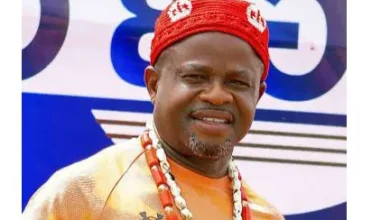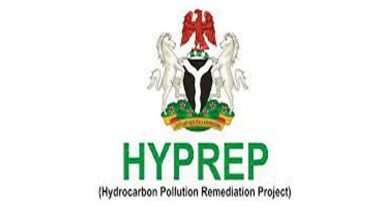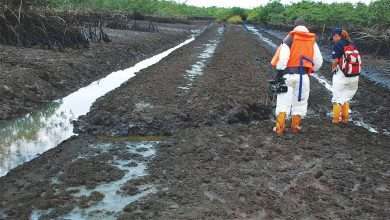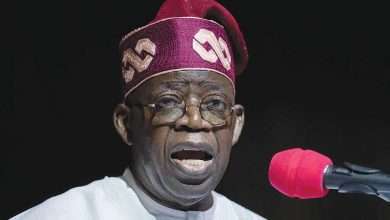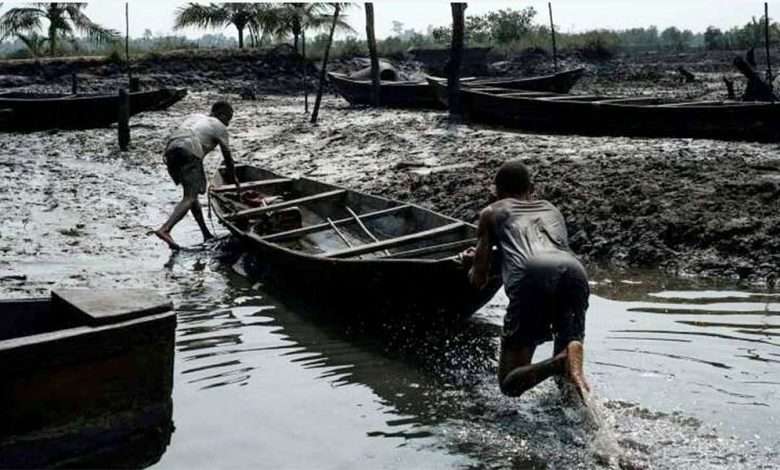
A monarch in Rivers State, Kadilo Kabari, has accused the Rivers State Government of paying lip service to the development of the Ogoni, especially in political appointments.
Kabari, who is the Paramount Ruler of the Barako ancient community in the Gokana Local Government Area of the state, spoke when the National Union of Ogoni Students, University of Port Harcourt chapter, paid him a visit at his palace.
The traditional ruler, who is the Convener of Ogoni Beyond Oil and Politics, expressed worry about why developmental projects were not being undertaken in Ogoni land.
He lamented that the government had yet to revive the Songhai Farm in Tai Local Government Area, which was alleged to be one of the reasons for the disagreement between Fubara and his predecessor, now Minister of the Federal Capital Territory, Nyesom Wike.
The monarch, who had just been appointed as a member of the governing council of the University of Port Harcourt, flayed the government for allegedly being silent in the face of the herders and farmers crisis in Eleme Local Government Area and for the refusal to intervene in the deplorable Kira to Baen road in Ogoni.
He asked, “How long will it take to revive the Songhai Farm in Tai, which was falsely peddled as a bone of contention between father and son?
“Why has no effort been made to mediate in the herders and farmers crisis that has claimed lives in the Agbeta axis of Eleme, and not even a statement has been issued by this government?
“Why hasn’t the fishing and agriculture produce distribution potential of the very narrow Kira to Baen road, which runs through Tai, Gokana, and Khana LGAs, attracted one of those multi-billion-naira road contract awards being made in other parts of the state, with none in the entire Ogoni axis?”
Chief Kabari also decried the neglect of the Ken Saro-Wiwa Polytechnic in Bori, the internal roads also in Bori, Khana LGA, as well as the lack of Ogoni representation in key government positions, saying the persistent marginalisation of the Ogoni people in the state was unbecoming.
The paramount ruler particularly noted with dismay that Gokana LGA had no commissioner or special adviser in Fubara’s cabinet, 15 months into the administration, while the entire Ogoni had no top government position, despite the region’s significant contributions to the state’s economy.
He called on the government to address the glaring marginalisation and ensure inclusivity in its appointments and policies.
He said, “As convener of Ogoni Beyond Oil and Politics, I feel the stigmatisation and marginalisation has moved from political to social, economic, academic, and now administrative.
“Gokana LGA has no commissioner or special adviser in Governor Fubara’s cabinet, 15 months into the administration. Worse still, the entire Ogoni as a whole has no top government position, yet no one is talking
“What about the pitiable state of the once prestigious Ken Saro-Wiwa Polytechnic and the Bori internal roads, one of which leads to the institution? How long does it take to get the contractor back on site or re-award the contract?”
The monarch charged the students to take their studies seriously and refuse to play second fiddle, stressing that injustice anywhere was a threat to justice everywhere.
The President of NUOS, UNIPORT, Hope Nornubari, thanked the monarch for his words of encouragement, describing him as a role model and mentor to the new generation of Ogoni people.

